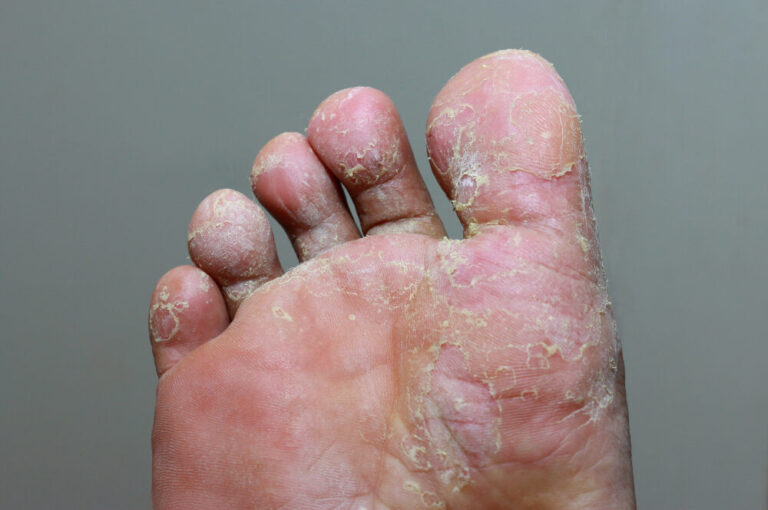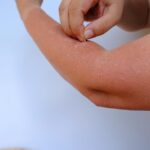
Myths and Facts About Hand Foot and Mouth
Protecting your baby from illness is one of your biggest
Consult An Experienced Healthcare Professional To Get The Right Treatment And Care
Athlete’s foot, also known as tinea pedis, is a common fungal infection that affects the skin of your feet and the space between the toes. It occurs in people whose feet are exposed to warm, moist or damp environments such as wearing tight or thick shoes for long hours.
Although the symptoms might be mild and complications are rare, it is essential to seek expert medical care to reduce future complications.
Therefore, as soon as you notice any unusual symptoms on your foot, such as itchiness, rash, or white patchy skin between the toes or foot, you need to contact an urgent care clinic immediately.
If you notice any telltale signs of Athlete’s foot, you can contact the Family Urgent Care clinic and visit us for early treatment and care. Some common symptoms include:

Yes, athlete foot can spread to healthy individuals from damp and wet environments, such as public showers or pool areas. It can also occur if you touch an affected foot or use any contaminated belongings from the affected person.
As long as the person has a fungal infection on the feet, it is contagious and spread from person to person. Therefore, if you have an athlete’s foot or are at a higher risk of developing a fungal infection, you need to be cautious and practice healthy foot hygiene by avoiding warm and damp environments. You can also visit an urgent care clinic for proper counseling and care from experienced healthcare providers.
Some people are at a higher risk of developing athlete’s foot than others. Such people include:
Athletes, Swimmers or Gym-goers: Some sportsmen or women who wear tight socks and shoes for hours or frequently use communal showers are at a higher risk of developing a fungal infection, as the fungi thrive in warm environments.
People Who Wear Closed-Toe Shoes: Some construction workers or soldiers wear tight, closed shoes for a long period of time.
Individuals Who Have Skin Conditions: Some pre-existing skin conditions, such as eczema or psoriasis, can make a person more susceptible to fungal infections.
Elderly Individuals: Some elderly people with less mobility and weak immune systems can also suffer from athlete’s foot, especially if they do not dry their feet after bathing.
People Who Excessively Sweat: Some people with hyperhidrosis, which means excessive sweating on the feet, armpits, and hands, are at a higher risk of fungal infections.
If you can relate to any of the above-mentioned groups, you need to be extra cautious and practice foot hygiene to prevent athlete’s foot in the future, especially if you have diabetes or suffer from any other immunocompromised conditions like HIV or AIDS.
Remember that the fungus grows in warm, moist, and closed areas. Therefore, make sure not to give a favorable environment for the fungus to grow. Here are some handy tips to prevent athlete’s foot this summer:
It’s time to say goodbye to the troublesome fungal infection, as our team is here to turn the irritating symptoms into relief by giving you personalized treatment and counseling you on practicing foot hygiene.

Protecting your baby from illness is one of your biggest

When summer is around the corner, you might be planning

If you tend to go barefoot outside or even around

Are you curious about the cost of telehealth services in

Taking Vitamin C is essential for maintaining health. It can

Ear infections are common in children but they also occur

Kids are Petri dishes with legs. They can get 8-10 colds

Some people would describe pink eye as “icky” — the

At Family Urgent Care, your health is not merely a service but a priority. At every location, our main aim is to deliver exceptional healthcare with a personalized approach. We prioritize treating each patient with empathy and care, considering their well-being as our sacred duty.